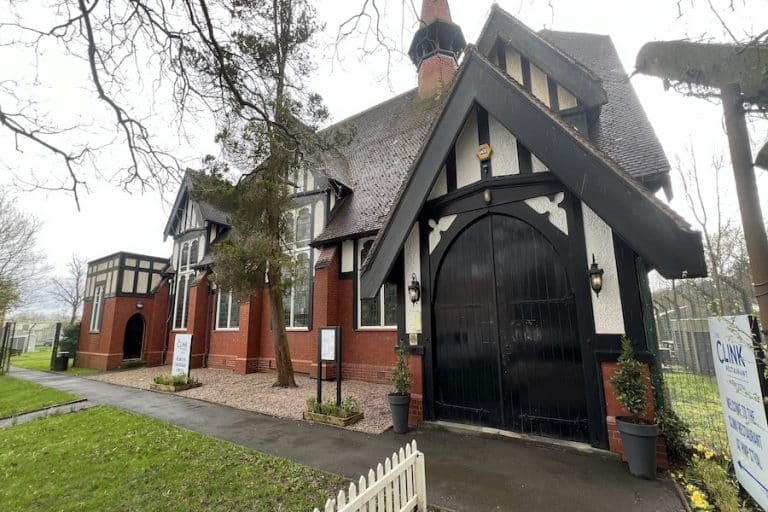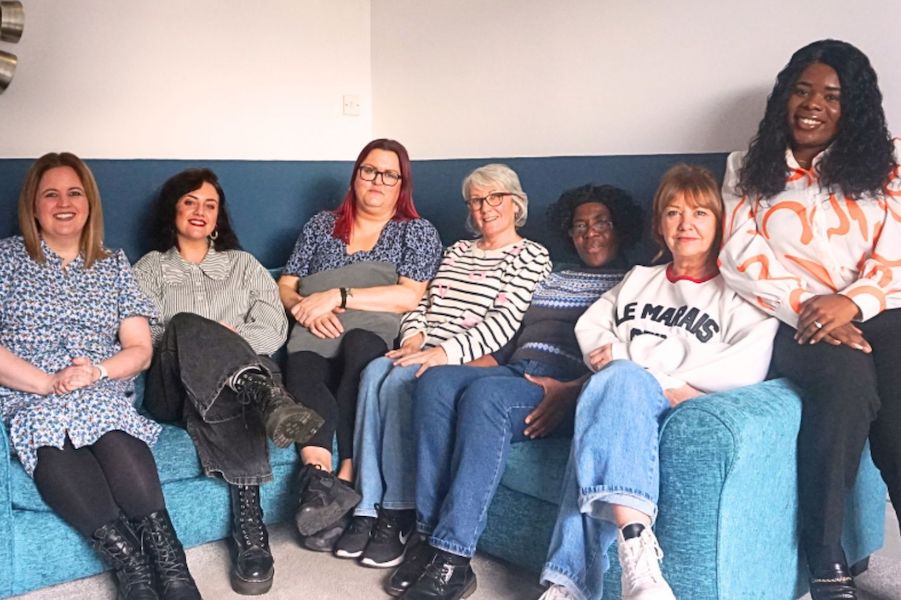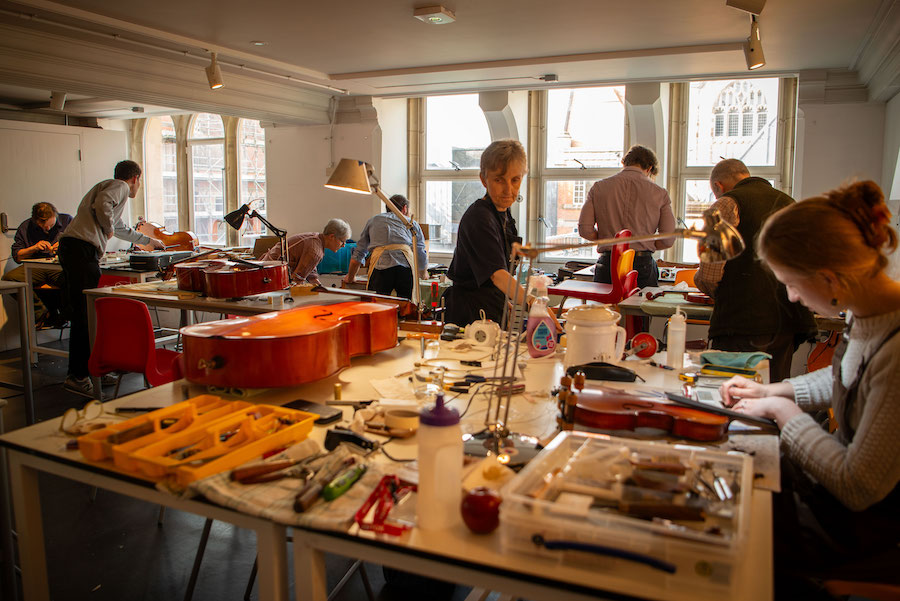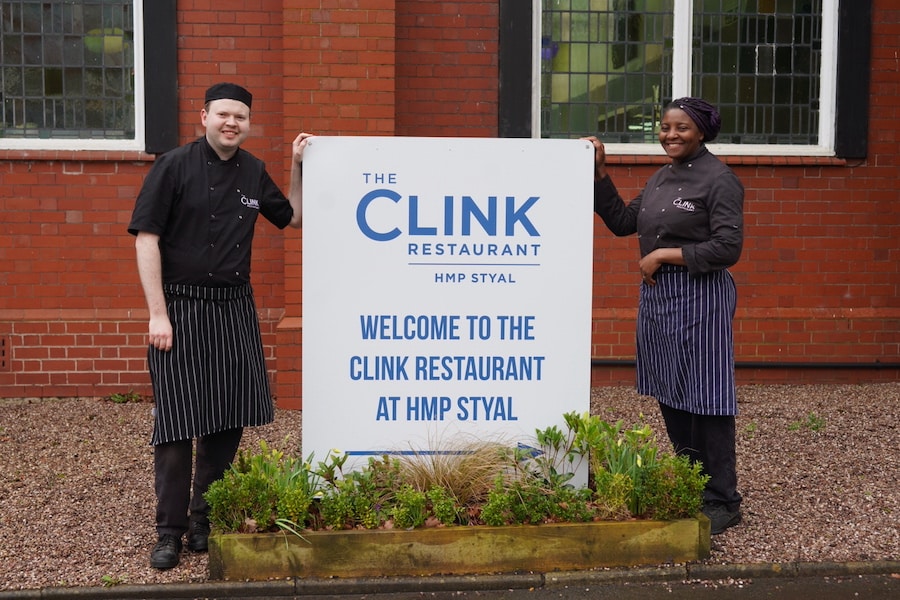The remarkable woman behind Manchester’s Victorian Chop Houses
- Written by Ray King
- Last updated 7 years ago
- City of Manchester, Food & Drink, Sponsored
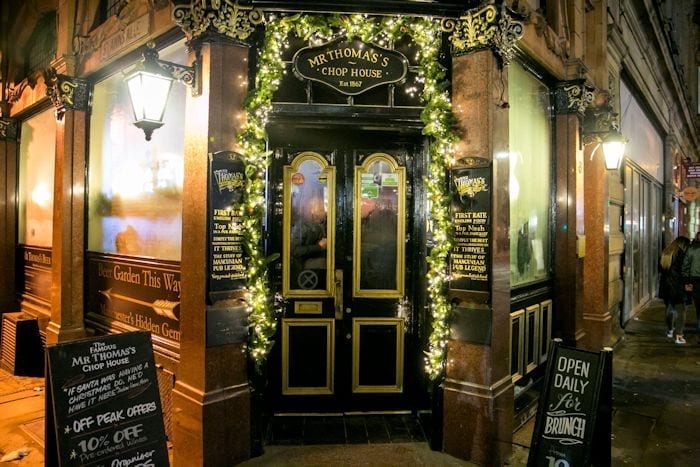
Roger Ward is a man on a mission. He’s researching and compiling a fascinating family history. But it’s not his own.
Birmingham-born Roger is enthralled by a man who, like himself, made his home and career in Manchester.
The former advertising executive is owner of the city’s three Victorian Chop Houses. He’s gripped by the story of Thomas Studd, a chef from Shoreditch in London’s East End who founded and gave his name to Mr Thomas’s Chop House more than 150 years ago. And then named his second chophouse, which opened in 1872, after his son.
Thomas and his wife, Yorkshire-born farmer’s daughter and waitress Sarah Townsend, whom he had married at All Saints Church, Chorlton-on-Medlock in the summer of 1855, called the establishment Sam’s London Chop House as a nod towards Thomas’s birthplace.
It was then located on Market Street close to The Royal Exchange Manchester, the epicentre of Cottonopolis’ trade and prosperity. Both chop houses became Manchester institutions at the time the city was at its most influential worldwide.
Thomas and his wife set up home in Derby Lane, Cheetham, where, just round the corner, 42 year-old Joseph Holt ran a little brewery which then served just 20 pubs. Holt’s continues to this day as one of Manchester’s celebrated independent family brewers.
“We can surmise that Thomas was a successful chef,” says Roger, “because just 12 years after the couple married they opened Mr Thomas’s Chop House in a prestigious location on Cross Street in 1867.

“The bar and restaurant was located in the original Georgian town house on the current site, just down the road from the famous Dissenter’s Meeting House which had become by then the enormously influential Cross Street Chapel.
“This was the spiritual home to the founding fathers of modern Manchester, which incidentally was first granted city status in 1853. Thomas’s was the pub closest to Manchester’s heart – quite literally – as the site is the nearest licensed premises to the mark on the tower of St Ann’s Church from which all distances to the city were measured.
“And the chop house’s front door faced the original town hall which was then located immediately over the road at the junction of Cross Street and King Street. Robert Neill was the mayor at the time. Tom’s was his local. This hugely exciting era was in many ways shaped by Unitarians from the nearby Chapel, led for 56 years by Rev. William Gaskell and his equally-famous novelist wife Elizabeth. They shaped reform and development in the city, which only took its first elected member of parliament in 1832.”
By 1845 Manchester had become the most economically powerful city in the world. It boasted the world’s first commercially successful canal, was home to the world’s first passenger railway station and to a number of the most influential people in the world at the time.
It was where Marx met Engels. Where John Dalton set out his atomic theory. Where the Women’s suffrage movement was founded. And where Edward Binney met James Young, who went on to create the world’s first oil refinery in Bathgate, West Lothian.
Members of the Cross Street congregation founded the ground-breaking and prestigious Manchester Literary and Philosophical Society, Owens College (soon to become the city’s university) and The Manchester Guardian. In fact, ten of the first twenty-eight mayors of Manchester came from this single non-conformist Chapel.
“To paraphrase Tony Walsh, who characterised the city’s response to 2017’s bomb, this location has been ‘the place’ for getting on for 200 years,” says Roger. “We do not yet know of Thomas Studd’s church affiliations, but we do know that, as his family and business grew with the city’s prosperity, the Studds moved to Broughton in Salford. Their chop houses were the places where people met and where deals were done.
“This success is reflected in further changes in the family’s circumstances. They moved to Grange Villa on Didsbury Road, Heaton Norris within easy walking distance of Stockport station, likely to have been Thomas and Sarah’s way into work. Their family grew to include seven children with the addition of Amelia, born in 1874. They were helped by three live-in servants.”
But six years later Thomas was dead. For the next mention of Thomas Studd in the public domain was the publication of his will. He died on March 11, 1880 aged just 45. The probate calendar records him as Chop House Proprietor. It tells us that Sarah was his sole executrix. And that his personal estate was valued at less than £1,000.
“But,” said Roger, “his widow turned out to be a remarkable woman – head of household, bringing up seven children, managing the servants and running the two chop houses. Sarah senior ran the business for 15 years until she was succeeded by her daughter, Sarah junior, who managed it until 1900. So now we know that the Studd family ran Manchester’s original chop houses for at least 33 years, that strong women were at the heart of its early success and that customer service was central to that success.
“We also know that Tom’s closed in 1900 and re-opened two years later, rebuilt as it is now.
It was then in the hands of Frank Willoughby and his partner James Binney, Edward Binney’s son, a barrister with offices in chambers above Thomas’s as it was then known. His funds were at least in part derived from his father’s successful partnership with James ‘Paraffin’ Young and the world’s first oil refinery.
“The rebuild made Thomas’s Manchester’s original modern building: the first iron-framed structure in the city. Frank Willoughby ran his business, which grew to include wine wholesaling, from these premises until 1942…so the chop house had been in just two sets of hands for 75 years.
- This article was last updated 7 years ago.
- It was first published on 18 May 2018 and is subject to be updated from time to time. Please refresh or return to see the latest version.
Did we miss something? Let us know: press@ilovemanchester.com
Want to be the first to receive all the latest news stories, what’s on and events from the heart of Manchester? Sign up here.
Manchester is a successful city, but many people suffer. I Love Manchester helps raise awareness and funds to help improve the lives and prospects of people across Greater Manchester – and we can’t do it without your help. So please support us with what you can so we can continue to spread the love. Thank you in advance!
An email you’ll love. Subscribe to our newsletter to get the latest news stories delivered direct to your inbox.
Got a story worth sharing?
What’s the story? We are all ears when it comes to positive news and inspiring stories. You can send story ideas to press@ilovemanchester.com
While we can’t guarantee to publish everything, we will always consider any enquiry or idea that promotes:
- Independent new openings
- Human interest
- Not-for-profit organisations
- Community Interest Companies (CiCs) and projects
- Charities and charitable initiatives
- Affordability and offers saving people over 20%
For anything else, don’t hesitate to get in touch with us about advertorials (from £350+VAT) and advertising opportunities: advertise@ilovemanchester.com

Head down the rabbit hole for Adventures in Wonderland with Z-arts

Major rail investment set to transform Manchester-Leeds commutes

“His presence will be deeply missed” Children’s hospice bids farewell to their visionary CEO

Has Gordon Ramsay created Manchester’s ultimate bottomless brunch?

The Clink celebrates ten years of empowerment and second chances
